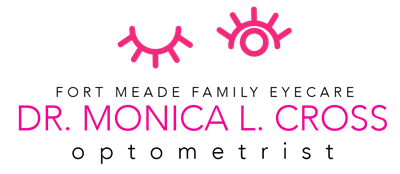
As we age, our eyes undergo various changes that can affect our vision and overall eye health. Understanding these changes and taking proactive steps can help maintain optimal vision well into your golden years. Here’s what you need to know about age-related eye changes and how to keep your eyes healthy year after year.
Common Age-Related Eye Changes
Presbyopia
Presbyopia is a natural part of aging where the eye’s lens loses flexibility, making it difficult to focus on close objects. This usually becomes noticeable in your early to mid-40s and may require reading glasses or multifocal lenses for focusing on fine print.
Cataracts
Cataracts occur when the eye’s lens becomes cloudy, leading to blurry vision and difficulty seeing in low light. Cataracts are very common in older adults and can be effectively treated with surgery to restore clear vision.
Dry Eye
As we age, tear production can decrease, often leading to dry, irritated eyes. This condition can cause discomfort and reduce vision quality. Using lubricating eye drops and managing environmental factors can help alleviate symptoms.
Glaucoma
Glaucoma is a group of eye diseases that damage the optic nerve, often due to increased pressure in the eye. It can lead to vision loss if not detected and treated early. Regular eye exams are crucial for early detection and management of glaucoma.
Age-Related Macular Degeneration (AMD)
AMD affects the macula, the central part of the retina responsible for sharp vision. It can cause central vision loss, making activities like reading and recognizing faces difficult. Early detection and treatment can slow the progression of AMD.
Tips for Maintaining Optimal Vision
Having Regular Eye Exams
Scheduling regular comprehensive eye exams is essential for detecting and managing age-related eye conditions. Your eye doctor can monitor changes in your vision and recommend appropriate treatments or lifestyle adjustments as needed.
Eating a Healthy Diet
A diet rich in vitamins A, C, and E, along with omega-3 fatty acids supports eye health. Foods like leafy greens, fish, nuts, and fruits are beneficial for maintaining good vision.
Protecting Your Eyes
Wearing sunglasses that block UV rays can protect your eyes from sun damage when outdoors. Additionally, using protective eyewear during activities that pose a risk of eye injury is crucial.
Manage Chronic Conditions
Conditions like diabetes and hypertension can affect your eyes. Managing these conditions through a healthy lifestyle and regular medical check-ups can reduce the risk of eye-related complications.
Stay Hydrated
Drinking plenty of water helps maintain the moisture balance in your eyes, reducing the risk of dry eye syndrome.
How Fort Meade Family Eyecare Can Help
Aging brings about changes in our vision, but with regular care and attention, we can maintain optimal eye health. At Fort Meade Family Eyecare in Fort Meade, we’re here to support you with comprehensive eye exams and personalized care plans. Schedule your appointment today and take the first step towards preserving your vision for years to come.

Contact 410- 415-1779 or 410-305-4142 and ask for an appointment with Dr. Cross.
Please note: